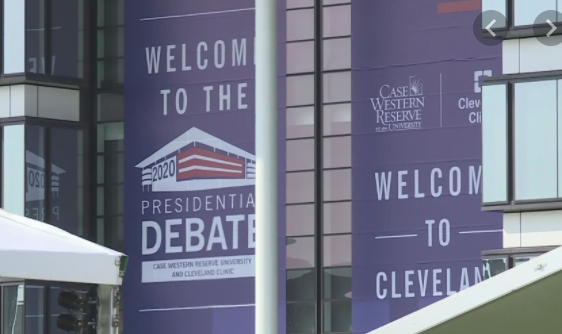


How Viewers of the Presidential Debates Can Become Better Informed Voters (And Not Alienate Family and Friends)
By Arthur Solomon, former VP at Burson-Marsteller:
In a recent post, I wrote, “Soon the presidential debates will begin with their ridiculous format of having the candidates answer questions in a few seconds, instead of giving them sufficient time to fully state their positions.
Even worse, after each debate TV pundits will criticize the demeanor, if not the replies, of the candidates and wonder if they “can recover from their poor performance.” (Question: Who elected the TV pundits to decide which candidate was better? Answer: They elected themselves. ) But the main reason these presidential debates are as ridiculous as the ones held during the primaries is because too many people think the way candidates can answer a question is the determining factor on how they will govern as president. And TV is to blame for that preposterous assumption.
There’s a simple way that the cable networks can improve their election night coverage: Do away with the multi-tiered panels of pundits, where each one has a different opinion, and just report the votes tallies as they are known. (But I have a better chance of becoming president than the cables doing that.) Also, candidate’s remarks should be fact checked for accuracy as they make them. Period. Exclamation Point.”
Now the first of three presidential debates, scheduled for Tuesday, September 29, is only several days away. Here are my suggestions how viewers of the debates can become better informed voters.
(This might be the best of the debates because the scheduled questioner is Fox News’ Chris Wallace, an aggressive interviewer who surly will not serve up softball questions to either candidate and is not fearful of asking tough follow-up questions, differing him from the majority of TV reporters.)
- Do not tune in any cable dominated pundit political show for at least 48 hours prior to a debate. (Most pundits couch their opinions with statements like, “It looks like, but,” thus giving them an out if their predictions are wrong, which they mostly are.)
- Do not tune in any cable dominated pundit political show for at least 48 hours after a debate. (Most pundits couch their opinions with statements like, “It looks like, but,” thus giving them an out if their predictions are wrong, which they mostly are.) Note: The duplication of this comment and the one above is intended.)
- On the nights of the debates, shut off your TV immediately after they have concluded. Doing so will prevent you from hearing the dishonest scripted comments from candidate’s surrogates in the spin room, or the uninformative gibberish of the TV pundits.
- Better still, listen to the debates on radio. In their September 26, 1960 TV debate, viewers who watched it clearly thought JFK won because he looked young and healthy; his opponent Richard Nixon looked pale, listless and ill. (He had recently been in a hospital because of a knee injury and lost weight.) But people who listened to the debate on radio had a different opinion: At best JFK was tied with Nixon; others, including liberal and conservative print pubs, thought Nixon was the winner.
- Remember: What Joe Biden says might be exaggerated, but what President Trump says will probably be a lie.
- The day after the each debate, read transcripts of what the candidates said and the hard news reports of the debate in trusted major dailies like the New York Times and Wall Street Journal, (but disregard quotes from the candidate’s surrogates). Do not read the opinion columns of the print pundits, known as columnists, the editorials or Op-Ed articles.
Once the debates are concluded, I suggest the following…
For the rest of this excellent article, click here.